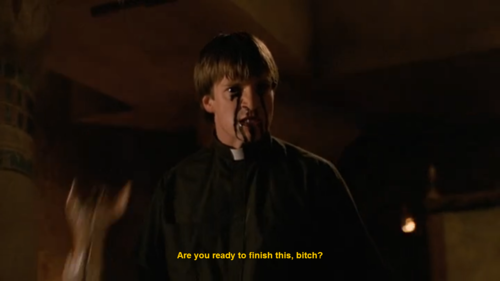[I'm submitting this to Style, but I'm putting it here so it'll be online somewhere if it doesn't get picked up.]
C.S. Lewis once claimed “The greatest trick the
devil ever pulled was convincing the world he didn’t exist”; similarly, we as a
nation are at a point where the greatest trick institutional misogyny ever
pulled was convincing the world it was defeated once and for all at the polls.
To
be sure, after a 2012 full of ugly, anti-woman legislation and statements, it
was a relief to see Todd Akin and Richard Mourdock lose their senatorial
campaigns (and Bob Marshall never get to begin his) and record numbers of
female candidates pull out wins. But to reduce the war on women to an electoral
contest is to miss the real problem. People like Akin may receive particular
scrutiny for their backwards views, but they don’t develop in a vacuum, and all
over the country, we’re getting demonstrations that the attitudes that fuel
misogyny, and actively hurt women, run deeper than an election.
Look,
for example, to the case of Steubenville, Ohio. Steubenville, like a lot of
small towns, is very much defined by its high school football team. So it was
something of a local scandal when two players were charged with the sexual
assault of a 16-year-old girl at a party in August. The victim herself did not
realize she had been assaulted until pictures relating to the assault were
distributed via social media. Beyond its local relevance, the story was largely
ignored until recently (the New York Times ran a story on the case, but it went
largely unnoticed due to the tragedy in Newtown, Conn. around the same time), but
what’s really disturbing is that the town’s treatment of the victim has been
less “Friday Night Lights” and more “The Lottery”. Not only have locals
referred to the victim as “the train whore” on Facebook, one of Steubenville
High’s football coaches told the New York Times that "She had to make up
something. Now people are trying to blow up our football program because of
it." And most disturbing of all, the hacker collective Anonymous released
a video in early January of a former Steubenville High student describing the
assault and laughing. Steubenville High’s head coach has not benched any of the
accused players.
Meanwhile,
in Congress (a sentence opening that never bodes well), the House of
Representatives failed to reauthorize the Violence Against Women Act, due in
large part to House Majority Leader Eric Cantor’s decision to block the
reauthorization in December; according to the Huffington Post, Cantor insisted
on the removal of a provision which would allow tribal authorities to prosecute
non-Indians who had committed sexual assault on reservations. According to the
watchdog group Media Matters for America, all three major television networks
failed to report on Congress’ failure to reauthorize the law.
Closer
to home, the Virginia General Assembly, which found itself in the midst of a PR
nightmare after attempting to pass sweeping, invasive anti-abortion legislation
last year, has introduced a host of similar legislation for the 2012 session, as
well as three separate bills by Delegate Bob Marshall (of course) that would
allow companies to deny their employees contraception coverage.
Ugly
mob mentality in a small town, congressional gridlock and a fringe conservative
GA fixture showing off might seem like tenuously-related subjects, but under
the surface, they are all symptomatic of a larger problem: despite the
post-mortems claiming the 2012 election was a referendum on misogynistic
policies and ideology, the “war on women” simply takes too many forms, on too
many levels, for it to be “won” in one fell swoop.
Repellent
though they are, people like Todd Akin or Rush Limbaugh are actually among the
less dangerous members of the anti-woman fringe; as extreme as their views are,
they don’t have the discretion or intelligence to make them palatable to the
public. The truly dangerous ones are people like the Virginia General Assembly
or the apologists for the accused in Steubenville; rather than simply dishing
out soundbites that appeal to the base and alienate the mainstream, these
people are actively doing things that hurt women and society as a whole, but we
don’t recognize the threat as long as they don’t say ridiculous things like “legitimate
rape”, even if they’re on video laughing about sexual assault. One of the truly
unfortunate things about our 24-hour news cycle is that a major story, no
matter how important, is likely to vanish from mainstream coverage after it has
“had its day”. And it’s especially hard for the media to address the fact that
things like misogyny aren’t simply going to be “won” by one side over the
course of a few months. But in the meantime,
women are still being victimized, and the people
doing it don’t care whether or not that fits the narrative.

